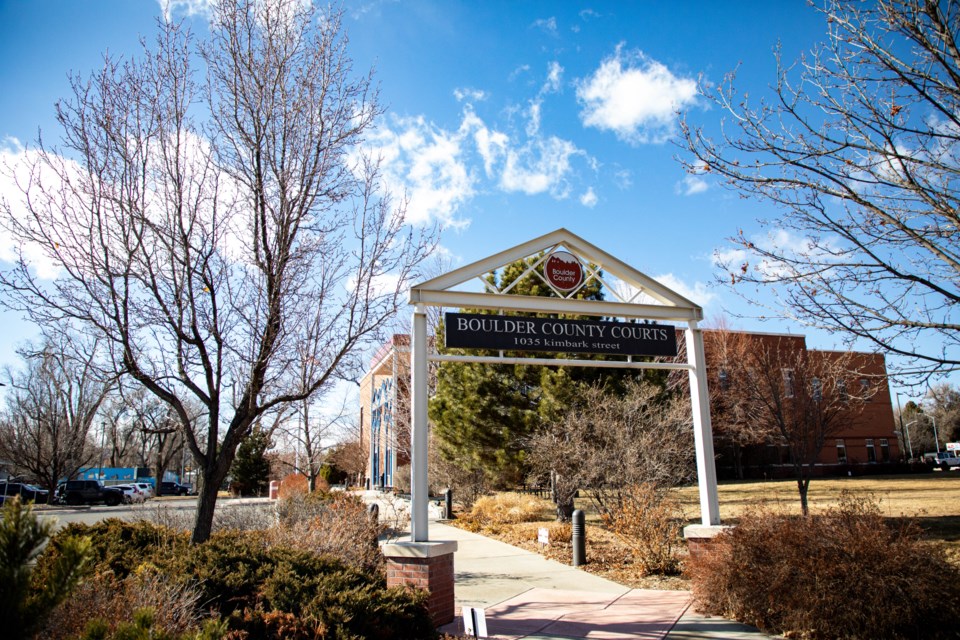The Colorado Supreme Court has ruled in a Boulder County District Court case that a victim cannot be compelled to testify at a preliminary hearing they attend without being subpoenaed.
The ruling, issued by the court at the end of April, was on a sexual assault case where the victim, identified as E.G., attended the preliminary hearing for the defendant and was compelled to testify despite objections. The court found that to uphold a victim’s constitutional and statutory rights, a victim can not be compelled to testify without being subpoenaed.
“Victims who are not under subpoena should be able to attend court without fear of being abruptly compelled to testify without notice,” District Attorney Michael Dougherty said in a statement reacting to the Colorado Supreme Court’s decision. “Our office will continue to fight for the constitutional rights of victims and the rule of law.”
A preliminary hearing happens after a criminal complaint has been filed by the prosecutor to determine whether there is enough evidence to require a trial. At play in this case is a defendant’s right to call witnesses at a preliminary hearing versus a victim’s right to attend a preliminary hearing.
During the hearing, the defense called on E.G. to testify without issuing a subpoena for the victim. The defense referred to a 1978 court case that determined that a defendant is entitled to call an eyewitness to testify at a preliminary hearing if the witness is available in court and the prosecution’s evidence consists almost entirely of hearsay testimony.
E.G. tried to leave after being called on to testify, and the defense asked the judge to require her to stay. The prosecution spoke with her in the hallway, finding her emotional over what had happened, and the judge required her to stay in the courthouse.
The judge, who was a visiting judge, overruled the prosecutor’s objections and ordered the victim to testify. It was argued that because E.G. “voluntarily made herself available in court” that the defendant was entitled to question her about the alleged use of force of violence.
“The court sympathized with the prosecutor’s concerns regarding E.G. but thought this situation probably ‘could have been avoided if she were not here,’” according to the Colorado Supreme Court document.
The judge granted the prosecution a motion for a stay so that they could seek review of this decision, leading to the Colorado Supreme Court decision.
In their decision, the court noted that the 1978 case referenced by the defense came before Colorado passed what would come to be known as the Victim Rights Act which, among other rights, ensured victims have the right to be present at all critical stages of the criminal justice process including the preliminary hearing.
The Colorado Supreme Court found that an un-subpoenaed victim attending such a hearing should not be called on to testify because it would undercut their rights under the Victim Rights Act, overruling the 1978 case.
“If what the county court did here were acceptable, then victims would have to think twice before attending certain proceedings like preliminary hearings — they would avail themselves of their right to be present at their own peril of being compelled to testify,” the decision said.
The Colorado Supreme Court also noted, however, that victims might still have to testify at a preliminary hearing, if the defense properly serves the victim with a subpoena. Of course, the prosecution may move to quash the subpoena, and then the court would exercise its discretion on how to proceed.
The Boulder County District Court said the decision was an important vindication of the rights of victims.
“As the Supreme Court noted, the Victim Rights Act was established so that victims would be treated with dignity and respect in the criminal justice system,” Chief Deputy Trial Attorney Adam Kendall said. “This opinion ensures that victims who exercise their right to appear at a preliminary hearing will no longer face the risk of being ambushed and forced to testify without warning.”



